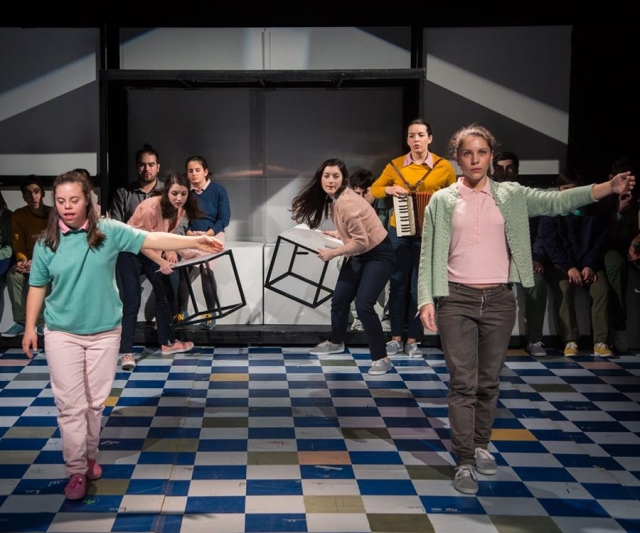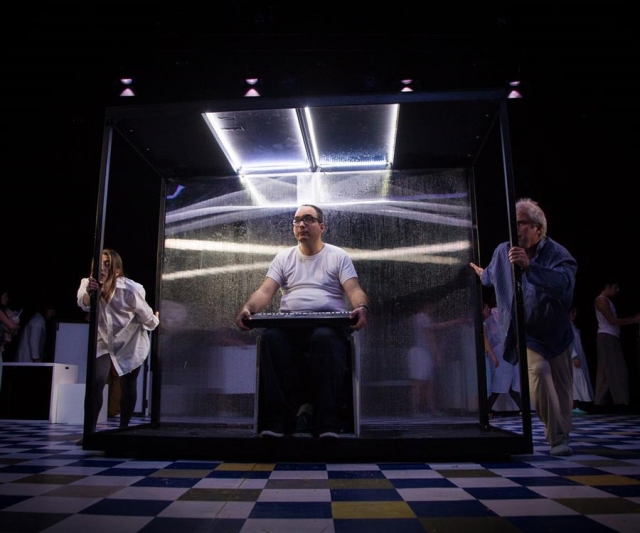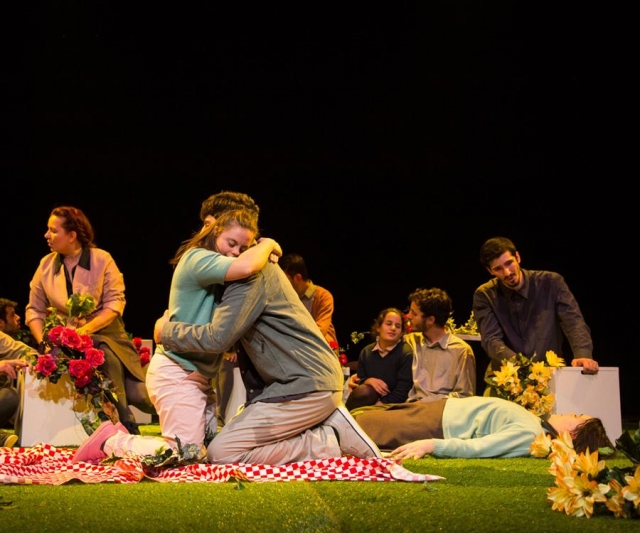Photos: sgt.gr
Anastasia Balezdrova
What is your home for you? Is it the space, objects or the light through the windows? And how do you prefer to live in it - alone, with family, with friends or are you forced to live with other people having nothing in common with them? Do people with disabilities have the opportunity to organize their personal space or is it provided ready to use as a result of the excessive protection on the part of their parents? How free is a person living in a dormitory or in a home for people with disabilities?
These are just some of the questions addressed by the theatrical performance "The other home" by the Thessaloniki theatre group "En Dynamei" ("Potentially"). At the same time, the play is a confrontation between institutionalization and freedom, says the play's director Eleni Efthimiou before GRReporter.

For two hours, the actors are performing, singing, forming different rooms and recreating the feelings of the people living in them. Each of them presents a personal space and although it is located very close to another one, it often remains totally isolated. The performance is the result of a long study during which the participants in the play visited each other’s homes and the authors went to places like student hostels and homes for people with disabilities.
"We are interested in how people with disabilities have the opportunity to form their personal space. To seek potential answers to the difficult question that their parents ask themselves: "Where will my child go when I leave this world?", referring to the institutionalization caused by the public places for coexistence. They do not differ much from the homes for people with disabilities, since bans on changes in the premises are in effect there and requirements for compliance with specific rules. On the one hand, it is logical to have them but on the other they create a lot of restrictions and resemble a legacy of the past," says Evfthimiou.

The idea for the play was born last year when the members of the troupe, many of whom are people with disabilities, participated in a project, within whose context they arranged their personal spaces, as they would like. Their ideas are recreated on stage by a series of stories the creation of which involves them too. The second, harder part of the performance is showing mainly the conditions in the homes since "the performers could potentially find themselves there. Of course, the same applies to other actors and to all of us, because nobody can predict whether at some point in our lives we will need help with everyday things," she says.
"The other home" achieves its goal, namely to make the biewer think about his or her own home and look at the common home for all of us - society. Bringing closer the personal and the public space, which is ours too, is happening with the help of personal stories, hopes, fears and dreams of the members of the troupe, all of whom are main characters, more or less.
The group was formed in 2008 by artistic director Eleni Dimopoulou and Maria Yoanidou with as main objective the smooth integration of people with disabilities in society and finding common ways for creativity and coexistence. "Both are mothers of disabled people and I think the idea of searching for such ways through art stems from their need to leave the model of specialized training and treatment. They thus have created a group in which people with disabilities can live and work together on a par with people without disabilities. That is to be integrated and make a step towards society, not only to beg it for its attention," says the director.

The troupe involves Anna Kalincheva who was introduced to GRReporter readers on occasion of her awarding by the Greek Ministry of Education in 2012. She said that the group is working in a particularly professional manner and its members have been able to achieve the desired cohesion and coexistence with each other.
"The ‘En Dynamei’ troupe has brought me back to theatre. I thought that since I was in a foreign country with a different language I would hardly be able to engage again in theatre. However, because for me it is very important to belong to something, I can say that in the particular group I have found my circle of people," she said.
"The other home" is the second production of the troupe after "Fan man or how to dress an elephant", which is greatly recognized and presented on large Greek theatre stages. The first was part of the programme of the prestigious Athens Festival last summer whereas "The other home" is performed on the small stage of the Onassis Cultural Centre in Athens. Its performances will continue until Sunday, 24 January.